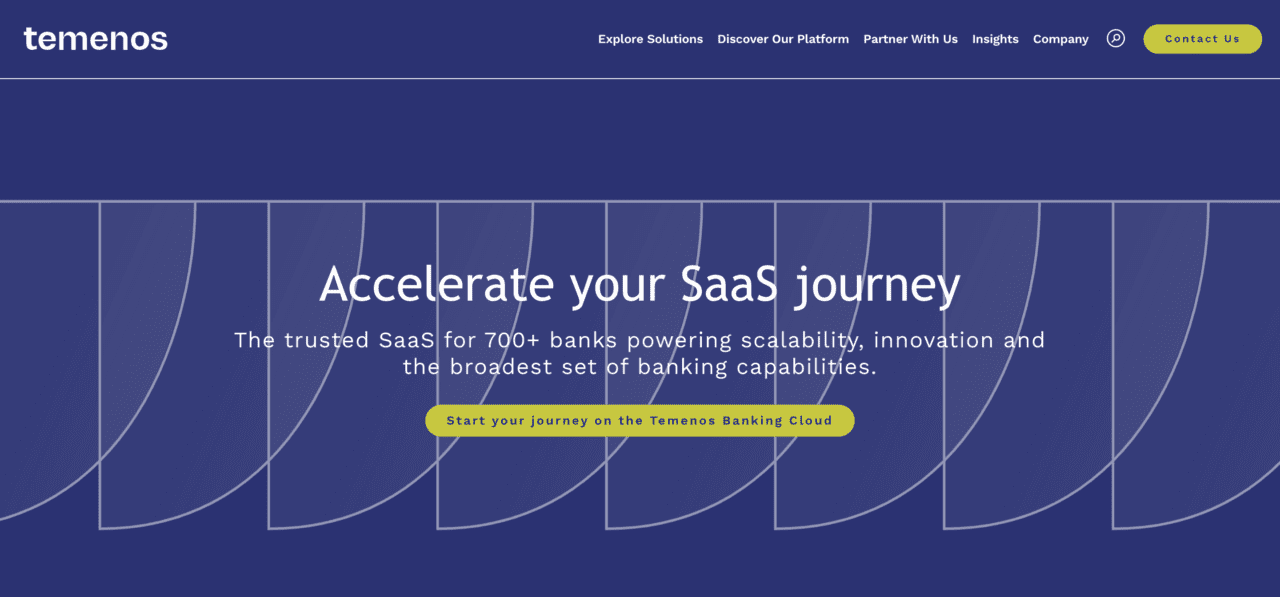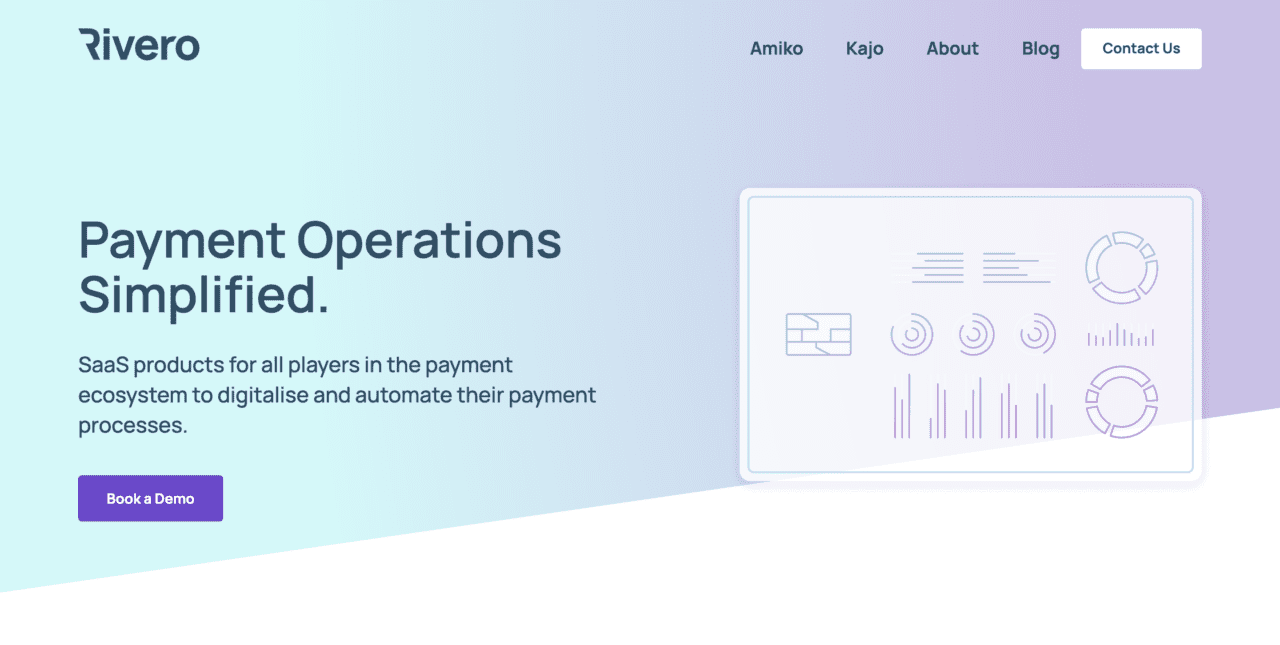
This week’s edition of Finovate Global looks at recent developments in the fintech scene in Canada.
First up, we head over to Toronto, Ontario, where embedded payroll software company Nmbr has secured $5.6 million (CAD$7.6 million) in seed funding. The round featured investors Panache Ventures, Golden Ventures, Motivate Venture Capital, and Luge Capital. In a statement, the company indicated it will use the funding to fuel growth and accelerate product development. And while focused presently on the Canadian market, Nmbr believes the investment will enable the firm to explore expansion opportunities in other countries.
“We’re incredibly grateful for our investors’ support and their confidence in our mission to empower businesses across the country with embedded payroll solutions,” Nmbr Co-Founder and CEO Simon Bourgeois said. “With these integrated systems already gaining traction in the U.S., we’re excited to extend these proven strategies to Canada.”
Founded in 2023, Nmbr simplifies complex financial products like payroll. The company’s technology enables businesses to embed Canadian payroll within their offering in days or weeks, rather than in years as is often the case with traditional payroll systems. Companies partnering with Nmbr have added payroll alongside operations such as AP/AR automation, employee scheduling, e-commerce, employee benefits management, and more. In addition to its funding announcement, Nmbr also reported that RBCx, the technology and innovation arm of Royal Bank of Canada, will serve as the company’s banking partner.
Staying in Ontario, but traveling 300 or so miles east, takes us to Ottawa and the home of Salt Edge, an open banking solution provider for banks, lenders, and other fintechs. This week, the Canadian fintech announced that it is helping Multitude Bank enhance its loan repayment processes to enable instant loan repayments.
“Salt Edge’s solution stood out due to its flexibility, competitive pricing, extensive coverage, and readiness to adapt to Multitude’s specific needs,” Multitude Bank CBO and Deputy CEO Dario Azzopardi said. “These factors were pivotal in choosing Salt Edge as a partner in this initiative.”
A core subsidiary of the Multitude Group, Multitude Bank will leverage Salt Edge’s technology, specifically using open banking method Pay-by-Link to provide customers with timely notifications about upcoming installments. The bank will use Salt Edge’s Payment Initiation solution to enable its customers to make instant loan repayments instead of relying on traditional online banking methods. The new process reduces transaction costs and connects bank clients with more than 2,300 banks across Europe.
“Open banking offers flexibility, and we’re happy to assist Multitude in supporting its clients with a safe and faster payment solution powered by open banking,” Salt Edge VP of Sales Erica Virlan said.
Salt Edge’s partnership with Multitude Bank comes just days after Moldova-based Victoriabank announced it was teaming up with Salt Edge to help ensure compliance with impending national legislation that will transpose European 2nd Payment Services Directive (PSD2) into Moldovan law. Also this month, the Canadian company forged new partnerships with international financial services company Ebury and Moldova’s Comertbank.
Salt Edge made its Finovate debut at FinovateEurope 2018 in London. The company offers an Open Banking Gateway that enables financial institutions to secure instant access to accounts in 5,000 banks across Europe, GCC, APAC, and the Americas for account information and payment initiation. Salt Edge also offers an Open Banking and Compliance Solution that helps banks and Electronic Money Institutions (EMIs) become compliant with PSD2 and open banking requirements.
Canada has a well-deserved reputation as a welcoming country. As of 2023, with more than eight million immigrants earning permanent residence status in Canada, immigrants currently make up approximately a fifth of the country’s population.
With this in mind, it is heartening to read news that Scotiabank has expanded its partnership with Canadian cross-border credit bureau Nova Credit. The two entities will work together to help newcomers from countries including Australia, India, Kenya, Mexico, and Nigeria to leverage their credit history from their home country to help them access higher credit limits when applying online for financing in Canada.
“Canada relies heavily on the success of our immigrant population and the contributions they make to our economy,” Scotiabank SVP for Retail Customers, Tanya Eisener said. “In an increasingly digital world, a person’s history doesn’t have to start over when they move to a new country. Being able to access their foreign credit report through Nova Credit’s credit service allows us to get a better understanding of their credit risk and ultimately help them settle in Canada faster.”
The expanded partnership between Scotiabank and Nova Credit is designed to tackle the challenge of “credit invisibility” or the absence of a credit record. In Canada, based on data from 2015 through 2019, more than 25% of those considered “credit invisible” were immigrants. Further, more recent immigrants, those who had been in the country for less than two years, were nearly twice as likely to be credit invisible compared to native-born Canadians.
Scotiabank is a multinational banking and financial services company based in Toronto, Ontario. The bank offers a range of services including personal and commercial banking, wealth management, private banking, corporate and investment banking, and capital markets. The institution has more than 90,000 employees and assets of more than $1.3 trillion as of April 2023.
Headquartered in San Francisco, California, Nova Credit is a consumer-permissioned credit bureau that specializes in helping businesses make informed decisions on thin-file, no-credit history, and new-to-country credit applicants. Founded in 2016, Nova Credit expanded to Canada in 2023 as part of its initial partnership with Scotiabank.
Here is our look at fintech innovation around the world.
Central and Eastern Europe
- Austria’s Bitpanda announced a collaboration with Societe Generale-FORGE.
- Turkey-based Fibabanka launched the country’s first Banking-as-a-Service platform this week.
- BNP Paribas acquired HSBC’s German private banking unit, enhancing its wealth management operations.
Middle East and Northern Africa
- UAE-based investor Mubadala announced that it has taken a “substantial stake” in all-in-one finance app Revolut.
- Payment solutions provider PayerMax partnered with Saudi Arabia’s Saudi Awwal Bank (SAB).
- Network International teamed up with Buy Now, Pay Later (BNPL) provider Tabby to support e-commerce merchants in the UAE.
Central and Southern Asia
- Pakistan-based Buy Now Pay Later (BNPL) company Qist Bazaar secured $3.2 million in Series A funding.
- Ant International forged a strategic partnership with Himalayan Bank to increase Alipay+ acceptance in Nepal.
- A partnership between Mastercard and ZOOD will bring virtual Buy Now, Pay Later cards for consumers in Uzbekistan. Read more about fintech in Uzbekistan in our Finovate Global interview with Oliver Hughes of TBC Uzbekistan.
Latin America and the Caribbean
- Uruguayan cross-border payment platform dLocal teamed up with Asia-based mobile wallet ShopeePay.
- Proclaiming itself the first digital bank dedicated to customers with disabilities, Brazil’s Parabank partnered with Dock to launch a new suite of credit and prepaid cards.
- MercadoLibre’s fintech division, Mercado Pago, has applied for a banking license in Mexico.
Asia-Pacific
- Payments innovator NETSTARS teamed up with ACI Worldwide to boost development of cashless payments in Japan.
- Singapore-based Bybit introduced new Shariah-compliant cryptocurrency accounts for Muslim investors.
- HSBC launched new financing plan for SMEs in Hong Kong.
Sub-Saharan Africa
- Africa-focused investment firm Helios Investment Partners led a $100 million Series D funding round in Banking-as-a-Service (BaaS) and infrastructure API provider M2P Fintech.
- Coming to America! African paytech Flutterwave has expanded its Send App remittance service to 49 states in the U.S. courtesy of a partnership with MainStreet Bank.
- PayZeep, a Nigerian fintech startup, partnered with the Amalgamated Union of App-based Transporters of Nigeria (AUATON) to bring new payment options to drivers.

















